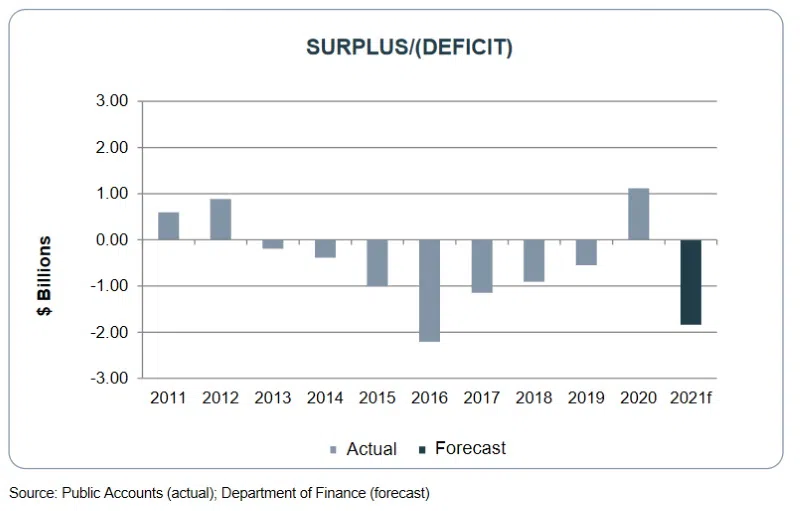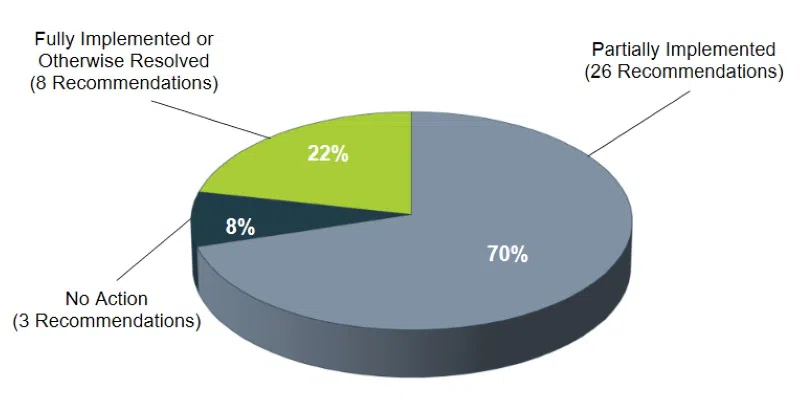The Auditor General highlights worsening trends in her audit of the province’s fiscal situation.
Denise Hanrahan delivered her report to the House of Assembly today on an audit of the financial statements for the provincial government for the year ending March 31, 2020.
The AG says the trend over the last decade shows that government’s ability to live within its means is worsening. Debt expenses have increased over the last ten years, reducing government’s flexibility.
The surplus reported in the fiscal year ending in March of 2020 was due to one-time federal revenue from the Atlantic Accord, without which the province would have posted a $1.24-billion deficit.
Net deficits over the last ten years have contributed to the net debt, now at $14.4-billion.
The province had forecast a $1.84-billion deficit for 2020-21, but declining revenue and increased expenses as a result of the pandemic mean that deficit will grow.
While the province generates the highest provincial revenue per capita in the country, it has one of the highest per capita tax burdens. In the meantime, spending over the last decade has steadily increased from $7.33-billion to $8.47-billion.
Hanrahan says government would be “significantly challenged” to address the potential that its budget target not be achieved.
Only 22% of Recommendations Set in 2017 Fully Implemented or Resolved
Meanwhile, Denise Hanrahan’s report on recommendations from the AG’s 2017 report shows that only 22 per cent of the 37 recommendations made have been fully implemented or otherwise resolved.
Seventy per cent of the recommendations were partially implemented after three years, while no action was taken on 8 per cent of the recommendations.
The Auditor General says she expects most recommendations to be fully implemented after three years and only two of the 17 entities involved, have implementation rates of 100 per cent. Those two were the Department of Finance and the Department of Health and Community Services.
Fifteen of the 17 entities have implementation rates of less than 60 per cent.
ABC Recommendations Not Acted Upon
Some agencies, boards, and commissions have their own compensation structure for employees, one considered by many to be above the payscale of the rest of the public service. However, recommendations from the Auditor General four years ago that the ABC’s align their pay packets with government departments hasn’t materialized to any great degree.
The AG reviewed the Public Utilities Board, Central Health, the Liquor Corporation, Workplace NL, the Newfoundland and Labrador Film Development Corporation, the Municipal Assessment Agency, Executive Council, and the Legal Aid Commission. However, the recommendations either were not acted on at all or only partially.
Denise Hanrahan says that means employees in that group may either be overpaid or underpaid.
She adds that consistent compensation practices and policies across government ensure compensation equity and fairness. Consistent compensation practices also help ensure that compensation costs are adequately managed and controlled.




















